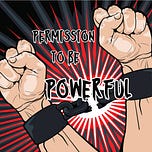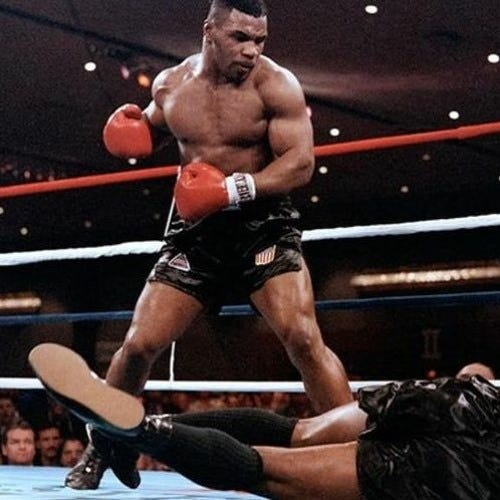Being The Chauffeur was my default setting.
I felt inadequate, drowning in overwhelming shame, convinced something was fundamentally wrong with me.
I saw myself as the sidekick in everyone else’s story, drawn to subservient roles, a slave to my insatiable need for approval.
I pretended not to care about others’ opinions, but fear consumed me.
I kept myself small, with terrible boundaries, always going along to get along.
“Whatever you want, dear…”
Terrified of saying “No,” I was crippled by guilt, allowing people to walk all over me.
Looking back, I see my flaws with pristine clarity.
Yet, if someone had asked me then…
“Are you the type of person who lets others take advantage of you?”
I would have adamantly denied it.
Your inner consciousness permeates every aspect of your life.
You can’t see how you’ve constructed your nightmare, with dysfunctional beliefs shaping a dysfunctional reality.
There’s a direct relationship between the two.
Change your beliefs, and the outside world must change.
Feel weak, and your reality will be poor.
Feel strong, and everything transforms.
But here’s the kicker…
Changing Beliefs is Hard.
You can’t just chant affirmations or make a vision board.
Life would be a breeze if it were that easy.
Challenging your beliefs feels like going to war—because it is.
You’re battling an identity you’ve fortified for decades.
Every fiber of your being has learned one way, and now you must overthrow that old self with a new one.
You won’t want to do it.
You might think you’re the exception, the special snowflake who can defy the odds.
But no, honey, you’re not the one…
It’s more complicated than you think.
Your current beliefs are almost set in stone, deeply ingrained.
It’s the ultimate swim upstream.
For some, becoming your authentic self may mean rejecting your parents.
Think about that.
How does one reject the people who MADE them?
That’s a battle most people don’t want to fight.
The human mind rewrites memories, casting childhood in a rosier light.
As a child, you needed your parents to survive.
Without them, you would have perished.
Loving your parents is hardwired into your biology, a matter of life and death.
You HAVE to love them, even when they don’t treat you well.
Being a chauffeur in adulthood is deeply rooted in upbringing.
The Traits of a Chauffeur
The traits of a chauffeur are the sum of coping strategies learned to survive in a hostile, often dangerous environment.
Strategies like:
People-pleasing
Seeking approval
Believing liars
Making myself invisible
Having no wants or needs
Being silent
Ignoring what I could see
Feeling helpless
Pathological giving
and having one-sided relationships.
Recently, I uncovered a new coping mechanism:
My inner child worries about EVERYTHING.
I obsess over potential pitfalls, devising plans for every possible disaster.
As a chauffeur, I had cripplingly low self-esteem and overwhelming self-doubt, which stunted my career for over a decade.
Whenever I pursued a new business idea, I found creative ways to sabotage myself: procrastinating, lacking necessary tools, whining about my lack of success to anyone who would listen, and seeking attention and pity.
In relationships, I gravitated toward women who oppressed me as I felt oppressed in childhood.
If, deep down, I believed I was no good, choosing a career that reinforced my sense of failure made sense.
Naturally, I chose an unstable business model in which almost everything was out of my control, and clients held all the power.
Fundamentally, as the chauffeur, I saw myself as a victim.
And I was, once—when I was a child.
But I’m no longer a child.
Even though I was victimized, that doesn’t mean I’m helpless today.
Yet, as the chauffeur, I behaved as if I were powerless.
I hated myself, at odds with my inner child, draining me of all power.
I had let my inner child down so often he stopped speaking to me, sabotaging my work and relationships.
We Teach People How to Treat Us
At 37, I’m just now realizing that all those years I craved women’s approval, I chased them, always available, ready to abandon myself immediately.
“Whatever you want, dear…”
And when they misbehaved, I mostly whined and complained but never took action.
Humans are more primitive in their thinking than we admit.
If you let anyone devalue you, even once, observers instantly adjust their perceptions.
You’ve signaled you don’t deserve respect.
People mirror the self-hatred you harbor.
They didn’t respect me—friends, family, clients—because I didn’t respect myself.
I taught them to feel that way.
Living with my ex-wife epitomized this dynamic.
She inspired The “Chauffeur” moniker as I drove her around for years.
Though I’d felt like a chauffeur before, my time with her was distinct; I documented my life in detail through journaling, making memories more explicit.
I also began therapy during that period—a game changer.
Reject The Chauffeur Mindset
I used to feel at home being a chauffeur.
Today, I’m learning to reject those familiar feelings.
Stop The Chauffeur mentality
My career, for example.
My freelance copywriting business was conceived from The Chauffeur’s mindset.
I lingered in this flawed business model for too long because the accompanying anxiety, self-doubt, self-pity, despair, and self-hatred were all too familiar.
That’s the real problem with being a chauffeur: Believing in your unworthiness condemns you to a miserable life.
You continually seek situations reminiscent of the old conditions that shaped your weakness.
That means shitty everything…
Career
Friendships
Relationships.
But it doesn’t stop there…
Some people are predatory.
As prey, it’s challenging to grasp that others can detect these weaknesses and, instead of offering compassion, see you as a target for exploitation.
They may be drawn to you precisely because they know they can take advantage.
Life as Mike Tyson is Affirming
Everything improves across the board.
I could have never dated the caliber of women I have without making this shift.
As the chauffeur, I chased and chased.
Before a relationship, I set the precedent that they didn’t have to be an equal partner.
I did all the heavy lifting while they fed me crumbs and called me lazy.
That’s the life of a chauffeur.
But it’s easy to start villainizing others.
One of the most challenging aspects of this journey was understanding how I benefited from being a chauffeur.
That forced me to confront how fractured my self-esteem was.
It made me see that lacking validation in childhood; I sought it externally.
For me, being the chauffeur meant I didn’t count.
My Wants, Needs, and Feelings Were Irrelevant
I accepted being ignored or abused as a fact of life, with no say in the matter.
This identity shaped my sense of what I deserved in every area of life.
The chauffeur believed he deserved crumbs.
So, that’s what I got.
It’s hard to reflect on this period with regret despite the unhappiness.
That struggle made me immensely strong.
The strength I wield today stems from that struggle.
What a noble fight.
It was the fight of my life.
Until next time,
Anton
Dancer, Writer, Buddhist













Share this post